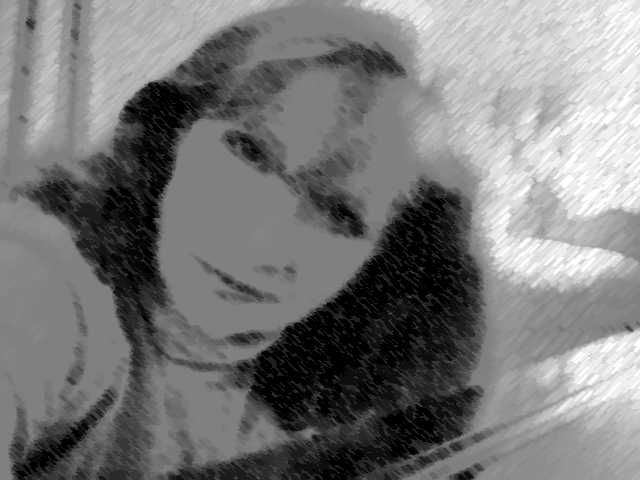Stand when they stand:http://www.al-islam.org/murajaat/index.htmI References to Proofs Mandating Following the `Itra,
II The Commander of the Faithful (as) Invites to Ahl alBayt's Sect,
III Relevant Statement of Imam Zainul`Abidin.
--------------------------------------------------------------------------------
Thul-Qi`da 12, 1329 A.H.
You, thanks to Allah, can be convinced by a mere hint, without the need for an explanation, and you are above doubting the very fact that the purified offspring (`itra) are superior to all others. Their case is quite clear: they have surpassed those with qualifications and have distinguished themselves from seemingly equal peers. They have carried from the Messenger of Allah, peace be upon him and his progeny, the knowledge of the prophets, and from him have they digested secular and religious jurisdictions.
1) The Prophet, hence, has made them equal only to the Glorious Book and set them models of conduct for those endowed with reason, and the ark of safety when hypocricy with its tumultous waves overwhelms the security of the nation, safeguarding it against dissension if the tempests of division rage, the Gate of Salvation: whoever enters it is forgiven, and the strong Rope of Allah which is unbreakable.
2) The Commander of the Faithful is quoted in sermon 86 in NahjulBalagha as saying:
"`Where are you heading (Qur'an, 81:26),' and `where are you straying (Qur'an, 6:95, 10:34, 35:3, 40:62),' since the flags are poised up high, the Signs are clear, and the lighthouse is erected? So, where are you straying? Nay! How can you be blindfolded while you have among you the household (`itra) of your Prophet? They are the reins of righteousness, the religion's flags, and the tongues of truth; therefore, accord them as you accord the Qur'an and approach them as thirsty camels approach the water. O people! Take this[1] from the last of the Prophets, Allah's peace be upon him and his progeny: `whoever among us passes away, he is not really dead, and whoever disintegrates (after dying) from among us does not really disintegrate; therefore, do not say what you do not know, for there is the greatest truth in what you deny. Accept the argument of one against whom you have no argument and it is: `Have I not dealt with you according to the Greatest Weight[2] (Qur'an)? Have I not left among you the Lesser Weight (Ahl alBayt) and laid firm among you the flags of faith?'"
He, peace be upon him, said, in sermon 96 of NahjulBalagha, "Behold the Household of your Prophet; emulate their example and follow in their footsteps, for they shall never take you out of guidance, nor shall they ever bring you back into destruction; halt when they halt, and rise when they rise, and do not go ahead of them lest you should stray, nor should you lag behind them lest you should perish." He, peace be upon him, has mentioned them once, as stated in sermon 237 of Nahjul-Balaghah, saying: "They are the life of knowledge and the death of ignorance; their forbearance informs you of their knowledge, and their outward appearance informs you of their conscience. Their silence indicates the wisdom of their speech. They neither differ from truth, nor do they differ among themselves about it. They are the pillars of Islam and the gateways to salvation. Through them, justice was achieved and wrongdoing was removed, and its tongue was uprooted. They comprehended the creed with care and concern, not like hearing and reporting, for the `reporters' of knowledge are many indeed, but those who safeguard it are few." He, peace be upon him, as stated in sermon 153 in Nahjul-Balaghah, has also said, "His offspring (`itra) is the best, and his family is the best. His tree is the best of trees: it was planted in the sacred place (Haram), and it grew like a vine; it has long branches and its fruit is not unattainable."
He, peace be upon him, is quoted in sermon 153 of Nahjul-Balaghah saying: "We are the banner, the companions, the trustees and the gates. Houses are not supposed to be approached except through their gates: whoever approaches them otherwise is called a thief," until he said, describing the purified offspring (`itra), "They are the vital portions of the Qur'an, and they are the teasures of the Merciful. They tell the truth when they speak, or when they remain silent; none can speak ahead of them. Therefore, let the forerunner speak the truth to his people, maintaining his reason."
He has said in sermon 146 of Nahjul-Balaghah:
"You should know that you will never know guidance unless you know who abandons it, nor will you abide by the Book (Qur'an) unless you know who contradicts it, and you will never uphold it unless you know who has discarded it; so, seek that from those who possess it, for they are the life of knowledge and the death of ignorance. They are the ones whose judgment informs you of their knowledge, their silence of their power of speech, their outer appearance of their inner selves; they neither violate the religion, nor do they differ among themselves about it, while it is among them a truthful witness and a silent speaker."
There are many similarly impressive statements of his, peace be upon him, in this regard; consider this one which is excerpted from sermon 4 in Nahjul-Balaghah: "Through us you received guidance in the darkness, ascending the zenith of nobility, and through us you reached the light and dissipated the gloomy night. May the ears that do not listen to the summoner be deafened."[3] He is quoted in sermon 104 of Nahjul-Balaghah saying: "O people! Secure your light from the flame of the lamps of a preacher who follows what he preaches, and drink from a spring cleansed from impurity."
He has also said the following in sermon 108: "We are the tree of Prophethood, the place of the Message, the ones to whom the angels make a pilgrimage, the treasures of knowledge, the springs of wisdom. Our supporter and lover awaits the mercy, while our enemy or antagonist us awaits the wrath."[4]
Among what he has said in this regard is sermon 143 of Nahjul-Balaghah wherein he says: "Where are those who claimed to be deeply versed in knowledge other than our own selves? (See also Qur'an, 3:7 and 4:162). It is a lie and a transgression against us, for Allah has raised us high while putting them down; He bestowed upon us while depriving them, and He permitted us to enter (in the fortress of knowledge) while turning them out. Through us, guidance is achieved and blindness is removed. Surely the Imams from Quraysh have been planted in Hashim's loins. Imamate can never fit anyone else, nor can government either." Then he stated: "But they preferred a speedy gain to a later one, forsaking a pure well to drink from an impure one," up to the end of his statement. He has also said at the conclusion of khutba (sermon) 189 of Nahjul-Balaghahh: "Whoever among you dies on his bed knowing the rights of his Lord and knowing the rights of His Messenger and his family (Ahl alBayt) dies as a martyr, and his reward will be incumbent upon Allah, and he deserves the reward of what good deeds he has intended to do: his own intention will make up for his use of his sword (in jihad)."
Also, he, peace be upon him, has said: "We are the virtuous; our descendants are the descendants of Prophets; our party is the party of Allah, the Sublime, the Glorified, while the transgressing party is the devil's; whoever equates us with our enemy is certainly not of us."[5]
Imam alMujtaba Abu Muhammad alHasan, the patient, master of the youths of Paradise (as), has said the following in one of his sermons: "Fear Allah regarding us, for we are your rulers."[6]
3) Whenever Imam Abu Muhammad, `Ali son of alHusayn Zainul`Abidin, master of those who prostrate in prayer, used to recite this verse of the Almighty: "O ye who believe! Fear Allah and be with the Truthful," he would make a lengthy invocation to Allah containing his plea to be included among "the Truthful" to attain the high ranks. He would then count the calamities and innovations of the group that split from the Imams of Faith and the Tree of Prophethood. Then he would say: "Some people went as far as underestimating us, making excuses for the Qur'anic verses which seem to them to be alike, giving their own interpretation thereof, and casting doubts about the transmitted narrarations in our honour," until he would say: "With whom shall people in this nation seek refuge, since the pillars of this creed have been forgotten and the nation has divided upon itself with dissension, each party accusing the other of kufr, while Allah says: `Do not be like those who became divided and disagreed (with each other) even after receiving the Clear Evidences (Qur'an, 3:104)?' Who can be trusted to convey the Divine proofs and interpret the Judgment other than the peers of the Qur'an and the descendants of the Imams of Guidance, the lamps amidst the darkness, those whom Allah made as His Arguments against His servants? He has never left His creation alone without a Proof. Do you know them or find them except from the branches of the Blessed Tree, the remnant of the Elite from whom Allah has removed all impurity, purifying them with a perfect purification, clearing them from sinning and decreeing their love in His Book?"
That was his own speech, peace be upon him, verbatim.[7] Look into it and into our quotations from the speech of the Commander of the Faithful; you will find them both representing the Shi`a School of Muslim Thought in this regard very clearly. Consider this much of their speech as a specimen for all such speeches of the Imams from Ahl alBayt. They all are unanimous in this respect, and our sahih books quoting them are mutawatir (consecutively reported), and peace be with you.
Sincerely,
Sh



